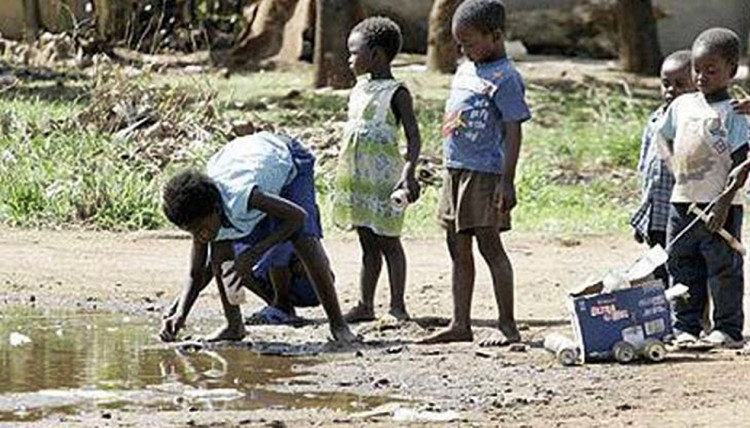The United Nations World Food Program (WFP) warns 2021 has all the makings of the worst humanitarian crisis year in its history as it struggles to feed hundreds of millions of people in conflict zones amid the COVID-19 pandemic with insufficient funding.
WFP Executive Director David Beasley said 2021 will likely become "the worst humanitarian crisis year since the beginning of the United Nations" 75 years ago.
He said WFP, which was conferred the 2020 Nobel Peace Prize, isn't "going to be able to fund everything ... so we have to prioritize, as I say, the icebergs in front of the Titanic."
Beasley pointed out the raging global pandemic, the restrictions, and other measures taken by countries to try to stop its spread, and the consequent severe economic impact have fueled a 40% increase in the number of people needing humanitarian help.
"2021 is literally going to be catastrophic based on what we're seeing at this stage of the game," said Beasley.
He revealed that for a dozen countries, famine is "knocking on the door." Among these famine-endangered countries are Yemen, South Sudan, northeastern Nigeria, and Burkina Faso.
"There's about three dozen countries that could possibly enter the famine conditions if we don't have the money we need," according to Beasley.
He noted at least 20 countries "are likely to face potential spikes in high acute food insecurity" in the next three to six months "and require urgent attention."
A joint analysis by WFP and the U.N. Food and Agriculture Organization (FAO) said some areas in these countries "have reached a critical hunger situation following years of conflict or other shocks," and any further deterioration in coming months "could lead to a risk of famine."
Other countries requiring urgent attention are Afghanistan, Cameroon, Central African Republic, Congo, Ethiopia, Haiti, Lebanon, Mali, Mozambique, Niger, Sierra Leone, Somali, Sudan, Syria, Venezuela, and Zimbabwe.
Beasley earlier appealed to countries not to relent with their donations that helped beat back the worst of world hunger in 2020.
"We were able to avert it (a global hunger pandemic) in 2020 ... because the world leaders responded with money, stimulus packages, deferral of debt," said Beasley.
He's afraid this might not be so in 2021. He pointed out COVID-19 is surging again. Economies are continuing to deteriorate, particularly in low- and middle-income countries, and new waves of lockdowns loom on the horizon.
Yemen is the country of most concern to WFP as it's now in the first stages of famine. WFP said pockets of famine-like conditions (IPC Phase 5) have returned for the first time in two years, based on the Integrated Food Security Phase Classification (IPC) analysis for Yemen.
It warns the number of people experiencing this degree of catastrophic food insecurity could nearly triple from 16,500 currently to 47,000 people between January and June 2021.
The IPC analysis warns the numbers of people facing Phase 4 food insecurity (or the Emergency phase) is poised to increase from 3.6 million to 5 million people in the first half of 2021.
"These alarming numbers must be a wake-up call to the world," said Beasley.
"Yemen is on the brink of famine, and we must not turn our backs on the millions of families who are now in desperate need. Make no mistake, 2021 will be even worse than 2020 for Yemen's most vulnerable people. Famine can still be prevented -- but that opportunity is slipping away with every day that passes."






